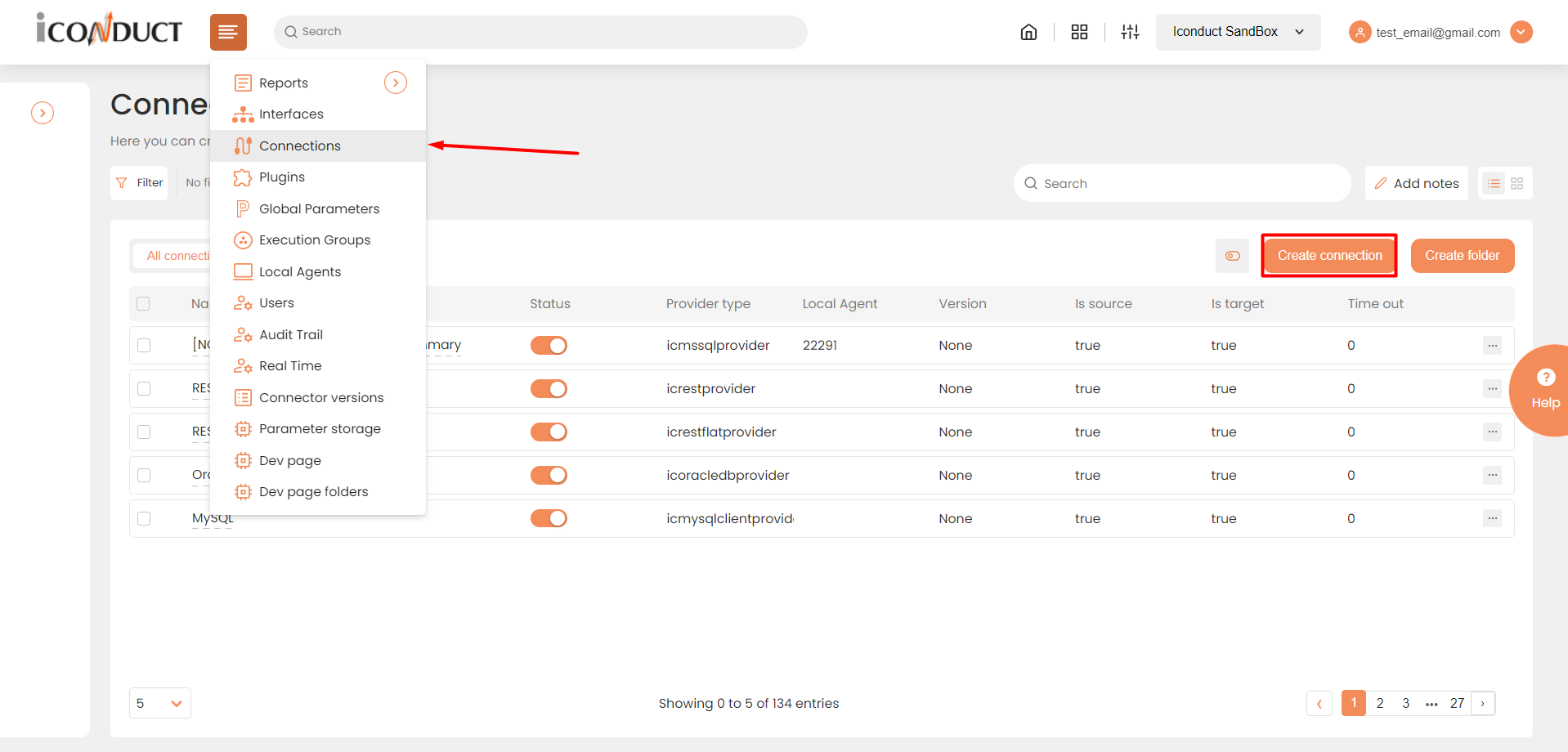TFS
The information on this page relates to the new upgraded interface of the IConduct platform. To view information about the Classic version of the user interface, follow this link.
Team Foundation Server (TFS) is a Microsoft product that provides source code management, reporting, requirements management, project management, automated builds, lab management, testing and release management capabilities. It covers the entire application lifecycle, and enables DevOps capabilities.
The TFS connector by IConduct provides for data import and export from/to the TFS system.
To configure the TFS connector, follow the instructions below:
- In the Main Menu, select Connections and press Create connection.

Accessing connections
- On the Connector Selection Page select the TFS item from the Source Controls section.

Connector Selection Page
- In the TFS Connection work area, fill in the following fields and
press Create
.

Connection Details Area
| Field | Description |
|---|---|
|
Connection* |
The new connection name. Enter a connection alias here. |
|
Is Active |
Toggles connector’s activity at interface execution. Enable the checkbox to activate the connection for execution. |
|
Cloud Agent* |
The LAN you are working with. Select "IConduct" for cloud systems and your corporate agent for internal systems. |
|
Implementation Type* |
Defines the connection implementation type. Select from the drop-down list:
|
|
Is Source |
This connection entity is available as a data source for Import (writing to Schema). Enable the checkbox to ensure data import. |
|
Is Target |
This connection entity is available as a data target that receives data from schema to current data container. Enable the checkbox to ensure data export. |
|
Timeout |
The length of time (in milliseconds) the IConduct platform waits for a response from the connection provider before returning a timeout error. Set the time value to stop the system from connection attempts. |
|
Query |
The box is intended for entering a query. You can test the defined query by clicking Test Query once the connection is saved. It’s recommended to test the query after the connection testing. |
|
DateTime Format |
Not used in this connector. |
|
Server URL* |
The service end-point where the request is sent. Specify the URL to your TFS system instance. Example: http://myserver:8080/tfs/DefaultCollection |
|
Team Project* |
The Team Project name in the TFS system. |
|
Authentication Type* |
Authentication method to access the TFS system. Select from the drop-down list:
|
| Username/Password* |
Credentials used to access the TFS system. The field entry depends on your Authentication Type selection. |
|
Domain |
Company’s domain name. |
*- mandatory fields
Once the connection is saved, you can test if it is successful. Press the Test Connection button. If the created connection works, you will receive a success message.

Testing the Connection
